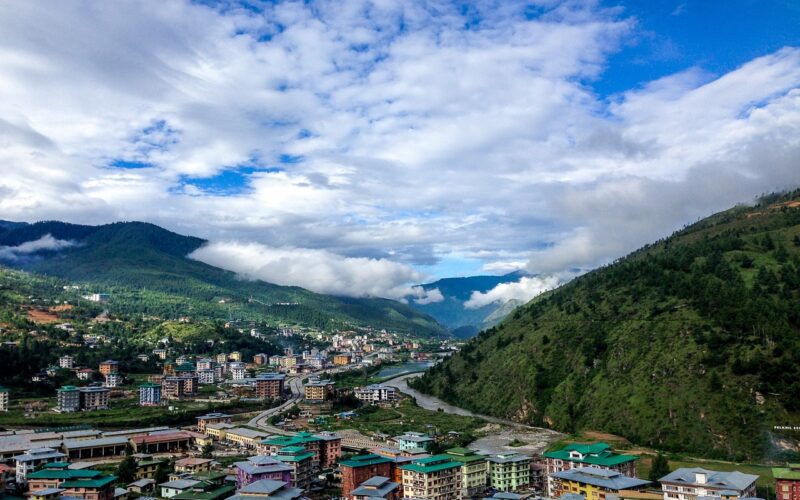Satellite images have uncovered Bhutan’s undisclosed state-owned Bitcoin (BTC) mining operations. The landlocked Himalayan nation, known for its seclusion and breathtaking landscapes, has transformed itself into a crypto haven under the rule of King Jigme Khesar Namgyel Wangchuck, according to a recent analysis by Forbes.
The report noted that Bhutan’s government has allocated land, funding, and energy to these secret mining facilities, hoping to mitigate an impending economic crisis. However, the exact locations and extent of these operations have remained a mystery until now.
“Bhutan’s crypto investments have been shrouded in secrecy for quite some time. These satellite images shed light on the country’s efforts to embrace Bitcoin mining as a means of economic stability,” said John Smith, a cryptocurrency analyst at Forbes.
Mining Sites Uncovered
Forbes, which previously reported on Bhutan’s multimillion-dollar bitcoin portfolio, has identified four mining sites through sources knowledgeable about Bhutan’s crypto investments and satellite imagery from Planet Labs, Satellite Vu, and Google Earth. These images reveal long rectangular mining units, data center cooling systems, and high-capacity power lines and transformers connecting Bhutan’s hydroelectric plants to the mining sites. These facilities have never been publicly disclosed.
“The level of secrecy surrounding Bhutan’s bitcoin mining operations is unprecedented. The government’s commitment to ensuring the success of this initiative is evident from the extensive resources allocated to these mining sites,” commented Sarah Johnson, a satellite imagery expert at Satellite Vu.
Hidden Mining Facilities
One of the facilities, considered the pilot location for Bhutan’s Bitcoin mining endeavors, was constructed near Dochula Pass. This area holds cultural and political significance as it houses 108 memorial shrines dedicated to fallen Bhutanese soldiers. Satellite imagery indicates that construction began in 2020 and seemingly finished in late 2022. The site is concealed within miles of forest, hidden from casual observers despite its proximity to a busy highway.
Another mining site is located near Trongsa, the ancestral seat of the current Wangchuck dynasty, while a third is situated in the densely forested district of Dagana. The largest and most significant mining facility is positioned on the site of a failed $1 billion government project called “Education City.” The project aimed to establish an international center for education and knowledge but was abandoned due to scandals and mismanagement. The Bitcoin mine on this site is concealed behind mountainous terrain but is betrayed by transformers and power lines. Historical satellite imagery reveals that its construction began in December 2021.
“The strategic positioning of these mining sites reflects Bhutan’s commitment to leveraging its natural resources for economic growth. The government’s decision to repurpose failed projects demonstrates their innovative approach,” noted David Thompson, an AI and blockchain specialist.
Bhutan’s Response to Economic Challenges
Bhutan’s interest in bitcoin mining arose as a response to the economic challenges caused by the COVID-19 pandemic. With tourism revenues and hydropower exports to India severely impacted, the country sought alternative solutions. Bhutanese officials began engaging with bitcoin miners and suppliers in 2020. The country experienced a significant surge in power usage by the industry in 2022, along with a substantial increase in imports of chips used for Bitcoin mining.
“Bhutan’s decision to embrace bitcoin mining shows their forward-thinking approach to overcoming economic hardships. This move could potentially revitalize their economy and create new job opportunities,” stated Robert Anderson, an economic analyst.
“The partnership with Bitdeer and the establishment of a new computing sector in Bhutan signify the country’s determination to position itself as a leader in the blockchain industry. This presents exciting possibilities for both Bhutan and its partners,” said Melissa Lee, a cryptocurrency expert.
Despite economic challenges and the need for reforms, Bhutan remains committed to blockchain-based solutions. The country recently unveiled an experimental decentralized digital identity app, with the crown prince serving as the first test subject and digital citizen.
“Bhutan’s commitment to blockchain technology is admirable. By embracing decentralized digital identity, the country is fostering innovation and paving the way for a digital future,” concluded Catherine Zhang, a technology journalist.
















